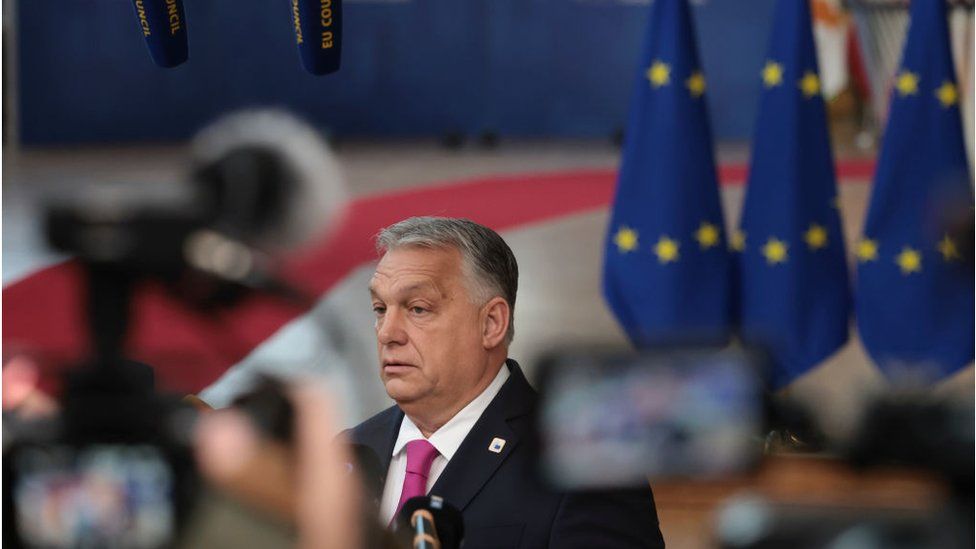-

-
-
Loading

Loading

European leaders are gathering in Brussels in an attempt to resolve a dispute over financial aid for Ukraine. Last December, Hungary's Prime Minister Viktor Orban vetoed a €50bn aid package for Kyiv, which many believe was influenced by the EU's withholding of €20bn of funds for Hungary due to concerns regarding human rights and corruption. These actions have led to rumors of potential punitive measures by the EU. Orban's stance on Ukraine, as a close ally of Russian President Vladimir Putin, has been clear, as he has been cautious in condemning Russia's invasion of Ukraine and has opposed EU sanctions on Russian oil and gas. Despite Orban's veto, Polish Prime Minister Donald Tusk is confident that the EU will find a solution to support Ukraine, with or without Hungary's support. The Financial Times has reported that Brussels officials could harm Hungary's economy if Orban blocks the support package for Ukraine again, which prompted Orban's political director to accuse Brussels of "blackmail against Hungary." Orban has suggested that EU countries finance Ukraine with money from outside the EU budget, or that the veto could be lifted if a yearly vote is held before the next tranche of aid is released. However, EU leaders are unlikely to agree to this proposal, as it would expose them to an annual veto threat from Hungary. The summit is occurring amid ongoing farmers' protests across major European countries, as farmers are opposing measures aimed at making the agricultural sector more sustainable and the decision to lift quotas on Ukrainian grain exports. European leaders are expected to demand solutions from the EU to address these protests. On Wednesday, the European Commission made some concessions to ease farmers' concerns, proposing an exemption to fallow-land requirements and introducing a "safeguard mechanism" to reimpose emergency tariffs on Ukraine if imports threaten the market. However, the EU's farmers' association believes these measures are inadequate to provide relief for producers.